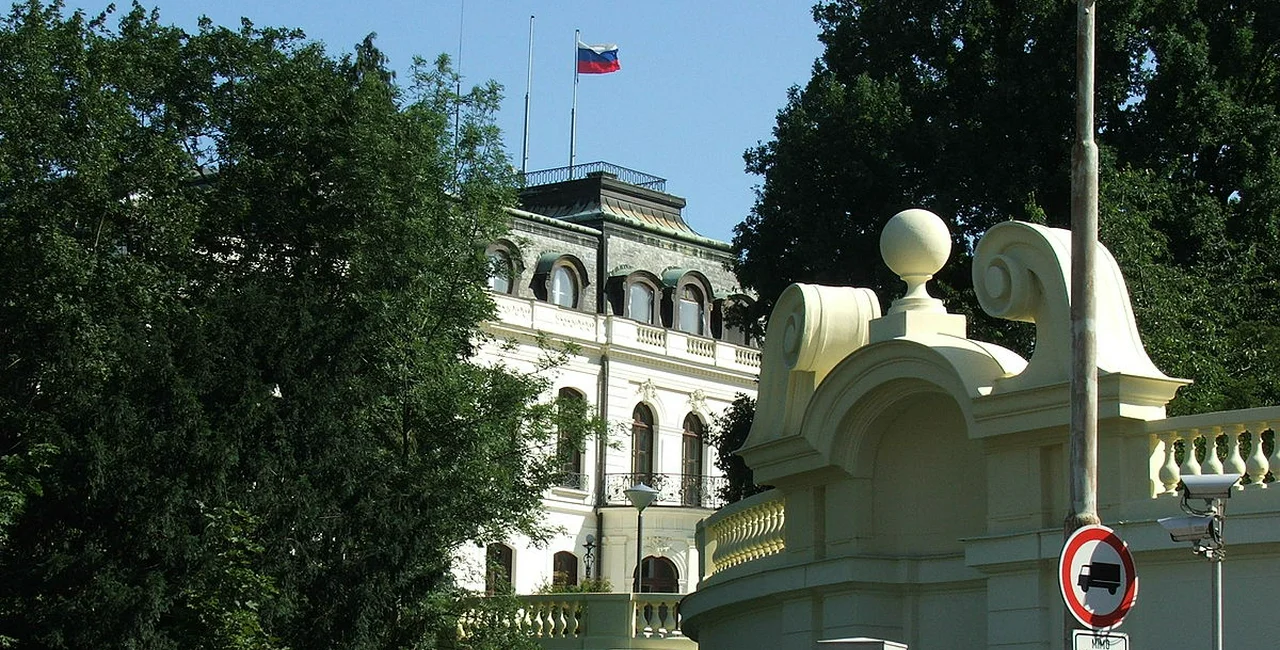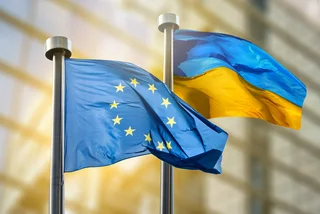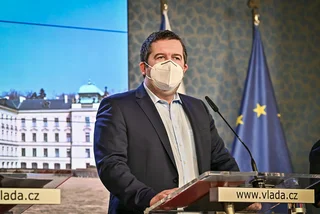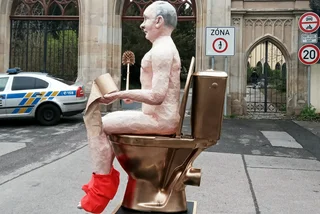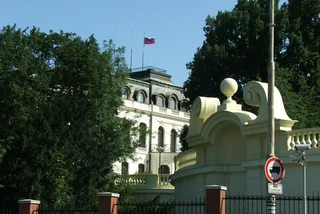The Czech government today canceled nine resolutions from the 1970s and 1980s, issued under communist Czechoslovakia, that enabled the then-Soviet Union to use real estate for diplomatic purposes for free, the Foreign Ministry confirmed to ČTK. Minister for European Affairs Martin Dvořák also told the Czech media about the decision today.
"We have overturned the government decisions made face to face with the gun barrels of Russian tanks after the (1968) occupation of our country, which until today allowed Russia to use large areas of land in our territory free of charge. Unjustified profits from the use of these lands must not be used to support the current invasion of Ukraine," Dvořák tweeted.
PARTNER ARTICLE
ZruÅ¡ili jsme rozhodnutà vlády uÄinÄ›ná pod hlavnÄ›mi ruských tanků po okupaci naÅ¡Ã zemÄ›, která dodnes umožňovala Rusku bezplatnÄ› využÃvat rozsáhlé pozemky na naÅ¡em územÃ. NeoprávnÄ›né zisky z užÃvánà tÄ›chto pozemků nesmà sloužit k podpoÅ™e souÄasné okupace Ukrajiny. pic.twitter.com/k478ux6oQk
— Martin Dvořák 🌈 (@_MartinDvorak) May 17, 2023
The case concerns not only apartments in Prague near the embassy, but also buildings in Brno, south Moravia, Karlovy Vary, West Bohemia, and recreational facilities in Vlkančice and Jevany near Prague. According to ČTK sources, today's annulment of the resolutions applies to a total of 59 plots. Russia is using the plots for other than diplomatic purposes, so there is no reason to continue to provide it free of charge, Czech diplomacy said.
Russia will have to meet the relevant tax obligations related to the properties in question. Instead of free use, it will be possible to agree on the use on the basis of lease contracts or choose other solutions more beneficial for the Czech Republic.
Foreign Minister Jan Lipavský submitted the proposal to the government in March but withdrew the material from the meeting due to an additional legal assessment of the matter.
The diplomatic relations between the Czech Republic and Russia have been tense since 2021, when the Czech secret services uncovered that Russian military intelligence agents were involved in the blasts of the ammunition warehouse in Vrbětice, South Moravia, in 2014.
In reaction to this information, the Czech government decided to considerably reduce the number of diplomats at the Russian embassy in Prague, and Moscow reacted by a similar step concerning the staff at the Czech embassy.
The number of Russian diplomats in the Czech Republic was further reduced after last year's Russian invasion of Ukraine. The Russian embassy in Prague currently has six diplomats. According to the Foreign Ministry, this fact rules out the possibility that the properties are used exclusively for diplomatic purposes.
The Czech Republic has repeatedly informed Russia about the matter. According to the explanatory report released to ČTK, the Foreign Ministry held debates with the Russian embassy on the specification of the real estate used for diplomatic purposes, including the interconnected conditions for its use.
Russia refused to do so, and this is why in July 2020, the ministry informed Russia in a note that the Czech Republic did not recognize the properties not serving diplomatic purposes as the diplomatic mission premises as of that date.
As of May 2022, the buildings of the former Russian consulates general in Karlovy Vary and Brno also lost their status as consular premises. According to the Foreign Ministry, some of the properties are used for commercial purposes and Russia is thus enriching itself unjustifiably by using the land free of charge.
"The total area of land used free of charge by the Russian Federation in the Czech Republic (92,001 square meters, of which 87,863 square meters are state-owned) and those owned by the Czech Republic in the Russian Federation (26,875 square meters) does not respect the principle of reciprocity largely," the ministry said.
The ministry warned of the possibility that the move would lead to a Russian reaction with regard to the Czech House in Moscow, which, although owned by the Czech Republic, is located on a plot owned by Russia.
Another dubious institution is the facility of the "Russian school" in Prague, whose use for diplomatic purposes is also at least questionable. Given the existence of an intergovernmental agreement and taking into account the fact that it is a building used for state non-commercial purposes, it is not the subject of the proposed settlement, the ministry said.
The Russian school has not been functioning since the expulsion of the Russian diplomats from the Czech Republic. The ministry is considering negotiations with Russia to swap the Czech House for some Russian-used real estate in Prague, but the chances that the talks would bring a positive outcome are poor after the invasion of Ukraine, the Foreign Ministry added.












 Reading time: 3 minutes
Reading time: 3 minutes 